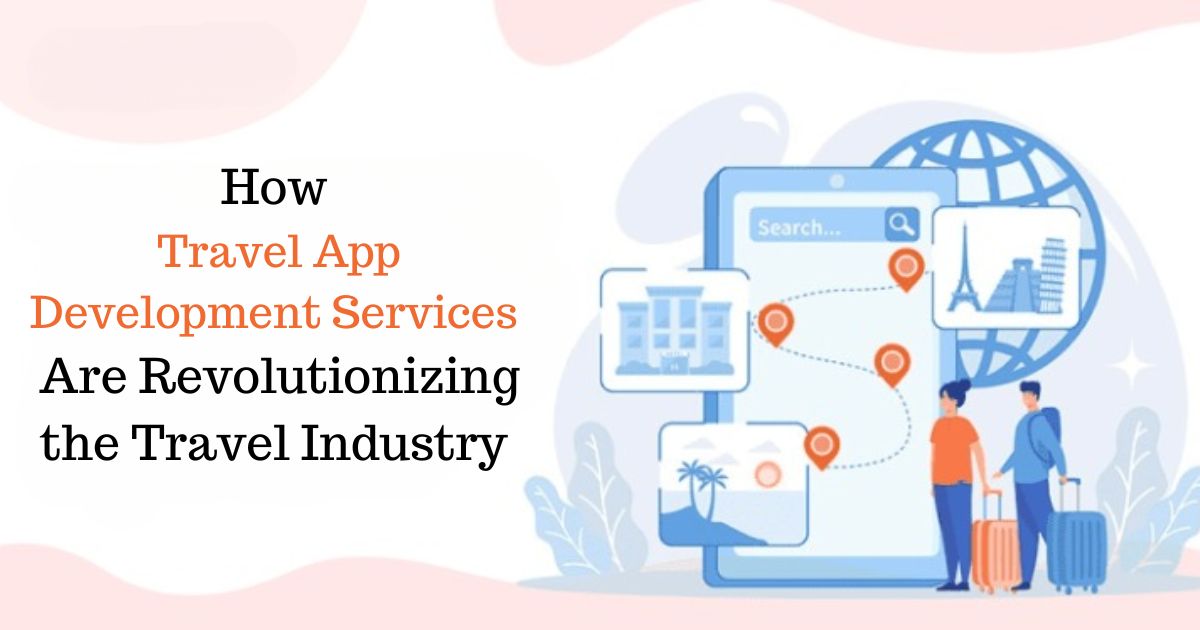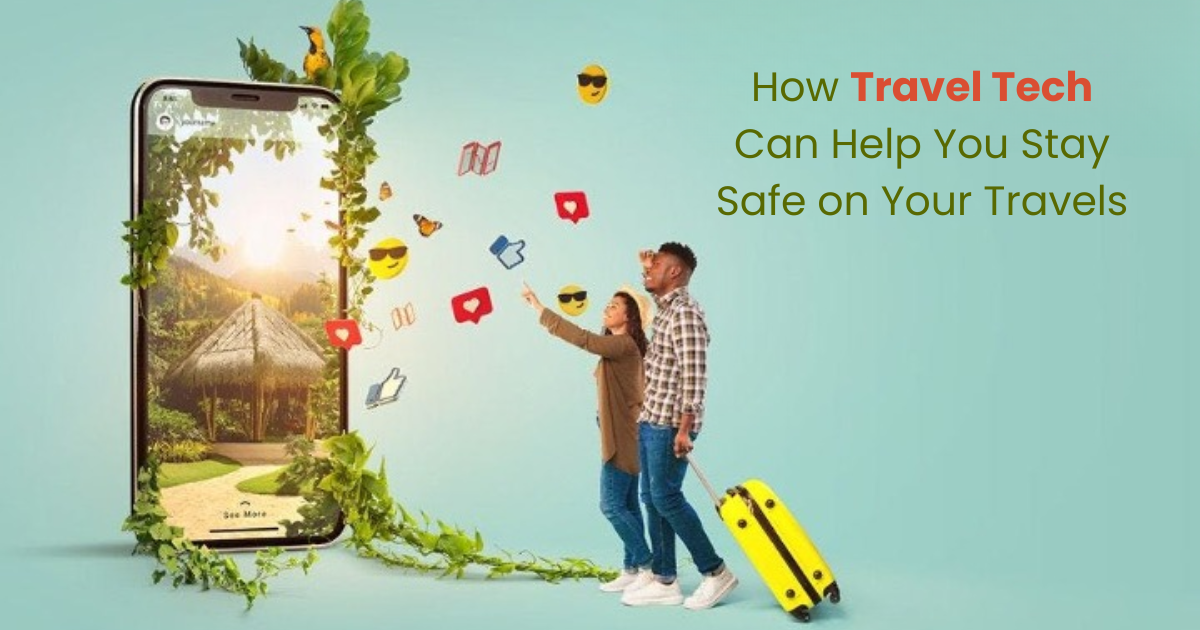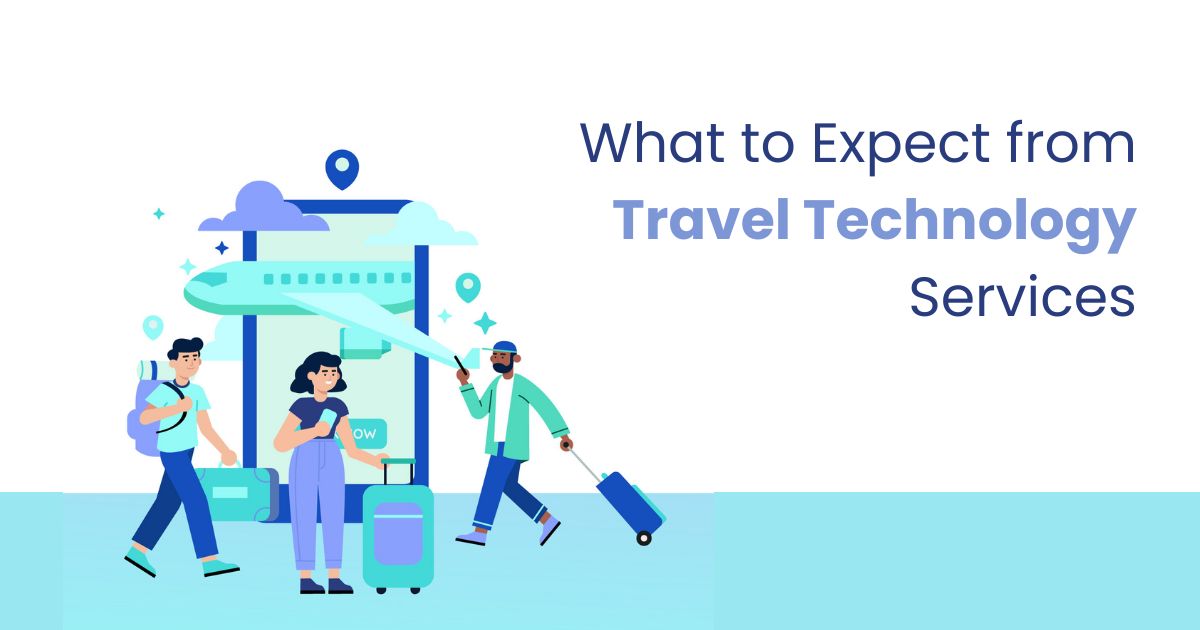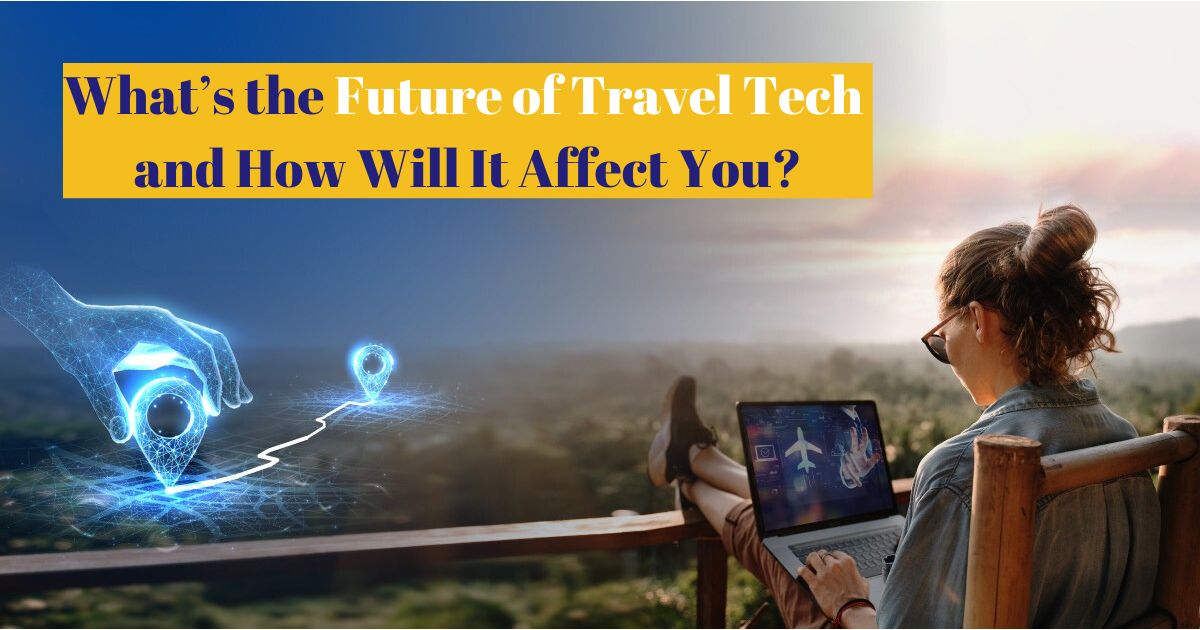The travel industry has undergone significant transformations over the years, and the advent of technology has played a pivotal role in these changes. Among the technological advancements, travel app development services stand out as a revolutionary force, reshaping the way people plan, book, and experience their travels. In this comprehensive article, we will explore how travel app development services are revolutionizing the travel industry, delving into the key aspects that make these apps indispensable for modern travelers and businesses alike.
Travel Technology Solutions: Enhancing Your Travel Journey with Advanced Technology SolutionsIntroduction
The travel industry has always been a dynamic and evolving sector, driven by changing consumer preferences, economic factors, and technological advancements. In recent years, the proliferation of smartphones and the internet has ushered in a new era of travel, characterized by convenience, personalization, and efficiency. Travel apps have emerged as powerful tools that cater to the diverse needs of travelers, offering a wide range of services from flight bookings to destination guides. This article aims to explore the transformative impact of travel app development services on the travel industry, highlighting the key features, benefits, and future trends in this space.
The Evolution of Travel Apps
Early Days of Travel Technology
In the early days of travel technology, travelers relied heavily on travel agents and printed guidebooks to plan their trips. The process was often time-consuming and lacked flexibility. The introduction of online travel agencies (OTAs) in the late 1990s marked a significant shift, enabling travelers to book flights, hotels, and rental cars online. However, the user experience was still limited to desktop computers, and mobile technology had not yet made its mark.
The Rise of Mobile Technology
The advent of smartphones and mobile apps revolutionized the travel industry, providing travelers with unprecedented access to information and services at their fingertips. The first generation of travel apps focused primarily on booking and reservation services, but as technology advanced, these apps evolved to offer a comprehensive travel experience. Today, travel apps encompass a wide range of functionalities, from itinerary management to real-time updates and personalized recommendations.
Key Features of Modern Travel Apps
Modern travel apps are equipped with a plethora of features designed to enhance the travel experience. These features cater to various aspects of travel, ensuring that users have access to everything they need for a seamless journey.
User-Friendly Interface
A user-friendly interface is crucial for any travel app. It ensures that users can navigate the app easily and find the information they need without any hassle. Key elements of a user-friendly interface include intuitive design, easy-to-read fonts, and clear icons.
Booking and Reservations
One of the primary functions of travel apps is to facilitate bookings and reservations. This includes flights, hotels, rental cars, and even activities and tours. The integration of multiple booking options within a single app provides users with a one-stop solution for all their travel needs.
Itinerary Management
Travel apps often come with itinerary management features that allow users to organize their travel plans in one place. This includes flight schedules, hotel check-in times, and activity reservations. Some apps even offer automated itinerary generation based on booking confirmations received via email.
Real-Time Updates
Real-time updates are essential for keeping travelers informed about any changes to their plans. This includes flight delays, gate changes, weather alerts, and traffic updates. Push notifications ensure that users receive timely information without having to constantly check the app.
Personalized Recommendations
Personalization is a key trend in the travel industry, and travel apps are at the forefront of this movement. By leveraging user data and preferences, apps can offer personalized recommendations for destinations, activities, and dining options. This enhances the overall travel experience by providing users with relevant and tailored suggestions.
Offline Access
Travelers often find themselves in situations where internet access is limited or unavailable. To address this, many travel apps offer offline access to essential information such as itineraries, maps, and travel guides. This ensures that users can still access critical information even when they are offline.
Language Translation
Language barriers can be a significant challenge for travelers. Travel apps with built-in language translation features help users communicate effectively in foreign countries. This includes translation of text, speech, and even signs using the smartphone camera.
Payment Integration
Seamless payment integration is another crucial feature of travel apps. This allows users to make secure payments for bookings and reservations directly through the app. Integration with multiple payment methods, including credit cards, digital wallets, and international payment options, ensures a hassle-free transaction process.
Benefits of Travel App Development Services
The development of travel apps has brought numerous benefits to both travelers and businesses in the travel industry. These benefits extend beyond convenience, impacting various aspects of the travel experience and business operations.
Convenience and Accessibility
Travel apps provide unparalleled convenience by allowing users to access a wide range of services from a single platform. Whether it’s booking a flight, checking into a hotel, or finding local attractions, travelers can do it all with just a few taps on their smartphones. This accessibility eliminates the need for multiple apps and websites, streamlining the travel process.
Enhanced Customer Experience
The personalized and user-friendly nature of travel apps significantly enhances the customer experience. Features such as real-time updates, personalized recommendations, and offline access ensure that travelers have all the information they need at their fingertips. This leads to increased customer satisfaction and loyalty.
Cost Savings
Travel apps often provide users with access to exclusive deals and discounts on flights, hotels, and activities. This can result in significant cost savings for travelers. Additionally, businesses can benefit from reduced operational costs by automating various processes and leveraging data analytics for better decision-making.
Increased Efficiency
For businesses in the travel industry, travel apps offer increased efficiency in managing bookings, reservations, and customer interactions. Automated processes and real-time updates reduce the need for manual intervention, allowing businesses to focus on providing exceptional service.
Data Insights
Travel apps generate a wealth of data that can be leveraged for business insights and strategic decision-making. This includes user preferences, booking patterns, and feedback. Analyzing this data helps businesses understand customer behavior and optimize their offerings to meet evolving demands.
Competitive Advantage
In a highly competitive industry, having a robust travel app can provide a significant competitive advantage. Businesses that offer a seamless and personalized app experience are more likely to attract and retain customers. This is particularly important in an era where travelers expect convenience and efficiency.
Impact of Travel Apps on the Industry
To illustrate the transformative impact of travel app development services, let’s explore a few case studies of companies that have successfully leveraged these apps to revolutionize their operations and enhance customer experiences.
Airbnb
Airbnb is a prime example of how a travel app can disrupt the traditional accommodation industry. By providing a platform that connects travelers with unique lodging options, Airbnb has transformed the way people book and experience accommodations. The app’s user-friendly interface, personalized recommendations, and seamless booking process have made it a popular choice for travelers worldwide.
TripIt
TripIt is an itinerary management app that simplifies travel planning for users. By automatically importing booking confirmations from email, TripIt generates comprehensive itineraries that users can access offline. Real-time updates and integration with other travel services further enhance the user experience. TripIt’s success highlights the importance of organization and real-time information in modern travel.
Skyscanner
Skyscanner is a travel search engine that allows users to compare flight, hotel, and car rental prices from various providers. The app’s powerful search algorithms and user-friendly interface make it easy for travelers to find the best deals. Skyscanner’s success demonstrates the value of offering a comprehensive and convenient search platform for travel services.
Future Trends in Travel App Development
As technology continues to evolve, travel app development services are expected to incorporate new features and innovations that further enhance the travel experience. Here are some future trends to watch in this space.
Artificial Intelligence and Machine Learning
Artificial intelligence (AI) and machine learning (ML) are poised to play a significant role in the future of travel apps. These technologies can be used to provide even more personalized recommendations, predict user preferences, and optimize pricing strategies. AI-powered chatbots and virtual assistants will also enhance customer support and engagement.
Augmented Reality (AR) and Virtual Reality (VR)
Augmented reality (AR) and virtual reality (VR) are emerging technologies that have the potential to revolutionize the way travelers explore destinations. AR can provide interactive maps and guides, while VR can offer immersive virtual tours of attractions and accommodations. These technologies will enhance the planning and exploration phases of travel.
Blockchain Technology
Blockchain technology offers several benefits for the travel industry, including enhanced security, transparency, and efficiency. Blockchain can be used to streamline payment processes, secure personal data, and reduce fraud. Travel apps that integrate blockchain technology will provide users with a more secure and reliable experience.
Voice Search and Commands
Voice search and commands are becoming increasingly popular, driven by the adoption of smart speakers and voice assistants. Travel apps that incorporate voice search capabilities will allow users to perform tasks such as booking flights, checking itineraries, and finding local attractions using voice commands. This hands-free approach will enhance convenience and accessibility.
Sustainable Travel
As environmental awareness grows, there is a rising demand for sustainable travel options. Travel apps can support this trend by providing information on eco-friendly accommodations, transportation options, and activities. Features such as carbon footprint calculators and recommendations for sustainable practices will appeal to environmentally conscious travelers.
Challenges in Travel App Development
While the benefits of travel app development services are substantial, there are also several challenges that developers and businesses must navigate to ensure the success of their apps.
Data Privacy and Security
Ensuring the privacy and security of user data is a critical concern in travel app development. Travelers entrust apps with sensitive information such as personal details, payment information, and travel itineraries. Developers must implement robust security measures to protect this data and comply with regulations such as the General Data Protection Regulation (GDPR).
Compatibility and Performance
Travel apps must be compatible with a wide range of devices and operating systems to reach a broad audience. Ensuring consistent performance across different platforms can be challenging, particularly with the frequent updates and variations in hardware capabilities. Developers must prioritize performance optimization and rigorous testing to deliver a seamless user experience.
User Engagement and Retention
With numerous travel apps available in the market, retaining user engagement can be challenging. To stand out, travel apps must offer unique features, personalized experiences, and exceptional customer service. Regular updates and enhancements based on user feedback are essential to keep users engaged and loyal.
Localization and Cultural Sensitivity
Travel apps cater to a global audience, and localization is crucial to provide relevant and culturally sensitive content. This includes language translation, local currency support, and culturally appropriate recommendations. Understanding and addressing the unique needs of different markets is essential for the success of travel apps.
Conclusion
Travel app development services have undoubtedly revolutionized the travel industry, offering unparalleled convenience, personalization, and efficiency to travelers worldwide. The evolution of travel apps from simple booking tools to comprehensive travel companions has transformed the way people plan, book, and experience their journeys. As technology continues to advance, the future of travel apps holds even more exciting possibilities, from AI-powered personalization to immersive AR and VR experiences. By embracing these innovations and addressing the challenges, travel app developers and businesses can continue to enhance the travel experience and shape the future of the travel industry.








